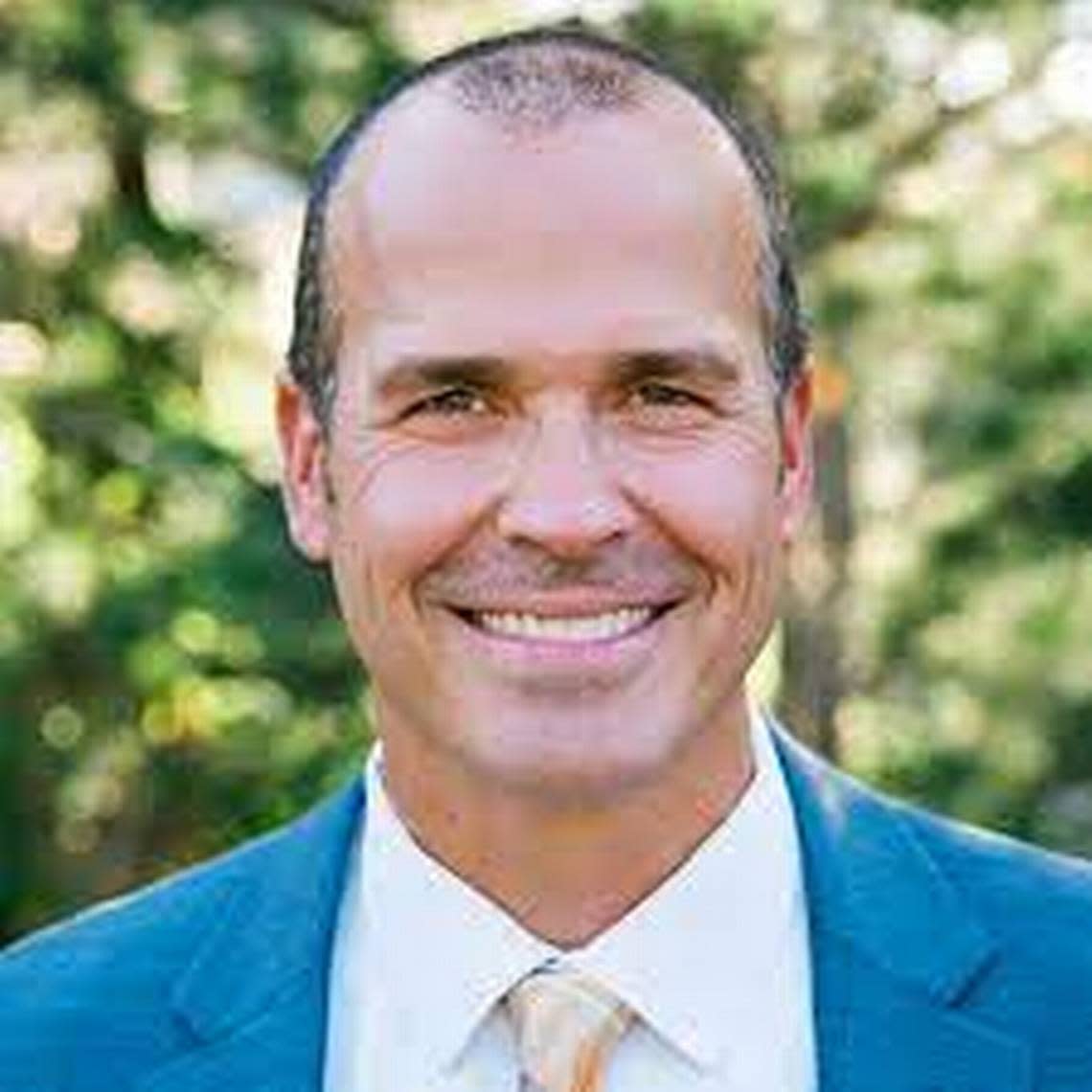Tri-Cities councilman votes on zone change for his brother. Should he have stepped back?
Should a Tri-Cities councilman have voted on a zoning change for a lot owned by his brother?
That’s the question debated recently in Kennewick but it’s a sticky issue other elected leaders are trying to navigate as they deal with unprecedented growth while trying to remain fair and impartial.
The recent Kennewick council debate questioned if Councilman Loren Anderson should abstain from voting when his brother’s business asked for a zoning change. City staff opposed the broader zoning change but the council had the final say.
During the discussion, Anderson openly talked about the sibling connection, another councilman noted that he originally built the office building on the property and a third councilman put on the record that he previously worked with the people making the zoning request.
All three felt they had no conflict in voting on the issue. In the end, no one recused themselves and the council approved the change on a split 4-3 vote.

Was there a conflict?
To start the discussion, Mayor Gretl Crawford read a standard disclosure statement, required by Washington’s Appearance of Fairness Doctrine, asking any council members to say whether they had real or perceived conflict of interest or the possibility of business or personal gain from the requests they were about to consider.
The doctrine applies to a variety of public hearings and offers guidance on when an elected official should not participate in a conversation if they stand to benefit from the decision.
Anderson disclosed that one zoning request was coming from his brother’s law firm, but said he had no detailed discussions with his brother about the issue and their relationship wouldn’t influence his vote.

“I understand some of the case. I’ve had no discussion with him on this, I have no financial interests or gain either direction on the matter and it’s my belief that I can make a fair and impartial decision on this matter,” Anderson said.
Councilman Brad Beauchamp said he had built the law firm’s office about five years ago, but has no ongoing relationship or financial stake with the property or law office.
And Kennewick’s newest councilman, Jason McShane, noted that in his job as the assistant district manager for the Kennewick Irrigation District, he previously had dealt with both parties requesting zoning changes that night. But he said the dealings weren’t relevant to the decisions before them.
Anderson later stressed that the question before them was a business decision that he felt in no way impacted him.
He said that if he felt there was any reason he could not be impartial, he would have recused himself. He noted that as a healthcare practitioner he has business relationships with thousands of members of the community, but has never let them influence his decisions as a member of the council.
Mayor Pro Tem Chuck Torelli said he was concerned not only with the appearance of a conflict, but with the precedent the council would be setting for members.
“I understand Council member Anderson’s answer, but then what becomes the standard for the appearance?” he said during the meeting.
“Again I’m not trying to throw rocks or anything like that, but it’s a family member. I guess I’m struggling with that one. Is it simply, I just say, ‘I’m good, trust me?’ Not that I’m saying that’s the case, that you’re not trustworthy,” he said.
“But I guess I’m struggling with the idea, why would you not recuse yourself just for the sake of appearance?” Torelli asked.

Creating a record
City Attorney Lisa Beaton, who currently is the interim city manager, told the council the easiest course of action would be for Anderson to step aside from voting, but there was no requirement.
Beaton said that the purpose of the disclosure, which Anderson made voluntarily, was to put it into the record and give the public the opportunity to raise concerns.
She said community members can still raise concerns, but by having the discussion on the record the council has laid the groundwork for assessing that decision in the future.
“It doesn’t prevent litigation in the future, but it provides a record for review, that’s the whole point,” Beaton said. “The easy route would be to recuse yourself, but again you’re not required to, we can’t make you do that. But again it’s so we can create a record to make the basis to judge that decision in the future.”
If a citizen or fellow council member challenges the refusal, the council can meet in a closed session with the city attorney about their legal options.
One option could result in the mayor or a majority of the council calling for a vote to censure the council member, according to the Municipal Research and Services Center of Washington.
The doctrine, which was adopted in 1982, has been notoriously hard to enforce, in part because of gray areas in the guidelines.
A 1998 Seattle Law Review analysis notes the standards in the doctrine and courts “leaves considerable uncertainty for the decision makers and much discretion to the courts.”
That uncertainty is why councils and other governing bodies place such a high priority on openly discussing potential appearances of conflict.

Split vote
The zone change was approved with Anderson, Beauchamp, McShane and Crawford in favor and Torelli, John Trumbo and Jim Millbauer opposed.
Anderson later told the Herald in an email that it was a bit of a surprise to him that the vote ended up being so close. He said he understands how some might be concerned with a potential conflict, but the issue at hand was one that he said his record shows he has consistently placed himself on the side of property owners.
It’s a split familiar to those who follow the council as the current majority works to loosen what they feel are overly restrictive, often antiquated zoning regulations.
The most prominent example was the debate over allowing more development on Thompson Hill, in which a split council ended a decade long debate by approving the late Jose Chavallo’s request to allow for development of his 40-acre hillside property.
Determining conflicts
So when does a relationship become a conflict of interest?
The Kennewick council is not alone in facing those challenges. It’s a problem that leaders across the Tri-Cities have dealt with in recent years. While the law and the Appearance of Fairness Doctrine offer guidance on how to handle the discussion and potential remedies, it is up to the public and other members of individual boards to decide whether further action is needed.
In this instance Anderson disclosed his relationship, giving the audience and fellow council members the opportunity to discuss the matter and potentially disqualify him from the vote.
Last year the three-person Franklin County Commission discussed if commissioner Rocky Mullen should vote on his brother’s development. Mullen ultimately recused himself from those votes, and then they further discussed whether he should even be in the room during the hearing.
One of Pasco’s newest council members, Peter Harpster, recused himself from talking about projects his employer was involved in while he was on the Franklin County Planning Commission. The potential for the appearance of conflicts of interest was a point of contention in his campaign for the city council.
Pasco Mayor Pete Serrano and Mayor Pro Tem David Milne also came under fire for working with La Voz newspaper to cover Seattle Seahawks football games. An anonymous community watchdog blog called the relationship an attempt to curry favor since the newspaper’s publisher is a well-known businessman who has previously asked for grant money from the city.
Pasco school board members Steve Simmons and Scott Lehrman both stepped down from the board in the past so they wouldn’t appear to have influence over hiring decisions involving their spouses. Simmons was later re-elected.
In most, if not all, of the cases, it is the appearance or potential for a conflict that was called into question.

Making a decision
At the Kennewick council meeting last month, the discussion turned to what zoning designation was appropriate for the lot.
Anderson Law owns an L-shaped property made up of two parcels with an office off Clearwater Avenue and a secondary lot, currently used for unpaved parking and storage, with a house on the Kellogg side.
The two lots had different zoning designations after they were moved from residential to commercial in the last comprehensive plan update.
The portion with the office has the commercial community designation, but city staff wanted to move the back lot to a more restrictive commercial office designation because it bordered homes.
Anderson Law can’t request a merger or change of the parcels in order to split the parking lot onto the office lot if the properties have different designations, but opening it to commercial community means that the city can’t close that door.
So if in 10 years, the lot is sold and someone wants to tear down the house and put a tavern on the property, which borders other houses to the south, it has the appropriate zoning for it.
Torelli said the biggest differences between the two zone designations are bars, card rooms, adult businesses and retailers, likening it to so-called ‘sin zones.’ It also includes lumberyards, RV sales and storage units.
“Could you build something like that on it? Would you tear down Anderson Law Office to build a mini storage? probably not, however what’s going to go there next when Loren’s brother retires?” Torelli said. “Who is going to buy it, what are they going to do with it?”
Trumbo noted that traffic on Clearwater is a prime example of what happens when the city doesn’t plan intentionally for growth.
The council members agreed this was unlikely to happen though, given the small size of the lot, but they remained split over the concerns by city staff.
No neighbors opposed changing the lot to “commercial community,” when city staff solicited input from neighbors ahead of the planning commission hearing.
Ultimately the council approved the broader designation and raised questions about whether the commercial office designation, much like the city’s antiquated car lot zoning has a place in its current planning efforts or needs to be eliminated altogether.
